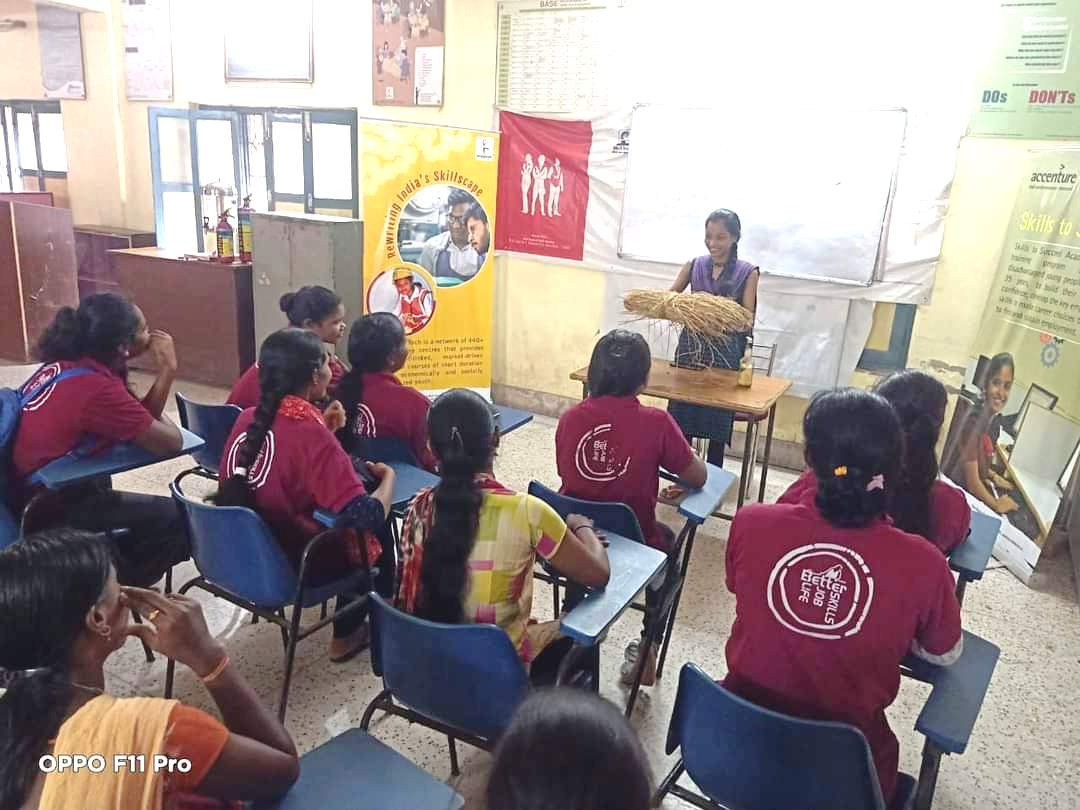Guest Lecture for Mushroom Grower Job Role (Batch - 03), Skills To Succeed 2024-25
16 Oct 2024

On October 16, 2024, Don Bosco Tech Society’s Sambalpur Center hosted a highly informative and engaging guest lecture for its Mushroom Grower trainees (Batch 3, Skills to Succeed 2024-25). The session, themed "Production of Different Mushrooms in Different Seasons," offered attendees a unique deep dive into the fascinating world of mushroom cultivation. The event opened with a warm welcome from domain trainer Mr. Dillip Kumar Behera, who introduced the guest expert for the day, Ms. Ranju Oram, owner of the esteemed Ranju Mushroom Farm. Her reputation for innovation in mushroom farming brought anticipation and excitement among the trainees.
Ms. Ranju captivated the trainees with her extensive knowledge of mushroom varieties suitable for different seasonal conditions in India. She highlighted the three primary mushrooms widely cultivated in India: button mushrooms, oyster mushrooms, and paddy straw mushrooms. She explained that paddy straw mushrooms, which thrive in temperatures of 35–40°C, are grown on raised platforms or in well-ventilated, shaded environments, perfect for the warm months. Oyster mushrooms, suited to moderate climates, offer a longer growing season of 6 to 8 months, while button mushrooms flourish in cooler winter temperatures, she noted. This segmentation of mushroom types by season sparked curiosity and further questions among the trainees.
The session turned into an in-depth workshop as Ms. Ranju discussed the various challenges and nuances in mushroom farming, such as climate conditions and disease control. She took the trainees through the intricate stages of mushroom cultivation, from spawn preparation and substrate readiness to the spawning process and detailed crop management techniques. Her explanations covered every step of the production process, including composting, spawning, casing, pinning, and cropping, enriching the participants' understanding of each stage's significance in achieving quality yields.
The interactive session reached a high point when the trainees, eager to learn more, posed their queries, to which Ms. Ranju responded thoughtfully and in detail. Her insights into troubleshooting common issues like spillage during production were practical and invaluable for aspiring mushroom growers. She also emphasized how mushroom farming can lead to self-reliance and open doors for self-employment—a point that resonated deeply with the attendees.
Ms. Ranju’s enthusiasm and the trainees' active participation created an inspiring and dynamic atmosphere. Seeing the eagerness of the participants, she shared additional tips and her personal experiences, which only added to the rich knowledge imparted that day.
As the session drew to a close, Ms. Ranju expressed her gratitude for the attentive audience, encouraging them to apply their newfound knowledge to real-world scenarios. The session wrapped up with a heartfelt thank-you from Mr. Lalgopal Nanda, who appreciated Ms. Ranju’s efforts to share her expertise with the trainees, empowering them to explore a promising career in mushroom cultivation.
This memorable and impactful session left trainees equipped with practical skills and the confidence to venture into mushroom cultivation, ready to harness their potential in a field ripe with opportunities for innovation and growth.